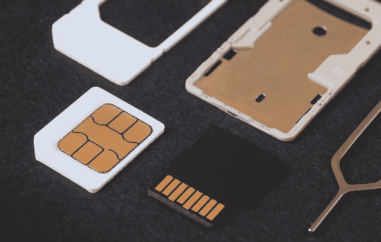Networking: Nature or Nurture?
Interview with expert science communicator Alaina Levine who is the author of 'Networking for Nerds'.
Could you tell us a little bit about your background and connection to science?
I've always had four parallel paths in my life; one was in science, one was in business, one was in the performing arts and one was in written communications. I love doing all four of those things. But what I really loved was science and so I came to the University of Arizona (UoA). I ended up getting two degrees; one was a bachelor's degree in maths, the other was a bachelor's degree in anthropology. When I graduated with my maths degree I thought that the only thing I could do was to go and get a PhD and become a mathematics professor. I had a very romanticised view of what that meant!
So did you pursue a career in academia, right after you graduated?
In fact one of the jobs that I had in my senior year was as a student assistant in the physics department to the Director of Communication. I was essentially doing Public Relations and Science Communications. By coincidence, my boss, the director of communications, quit as I was graduating. I decided to apply for her job since I already knew it and enjoyed it. The physics department took a chance and hired me. It changed my life because I saw that science communications was a 'thing' that people would pay you to do. It was a really great job and a fantastic entry point to my life and I'm so grateful that department head, Dan Stein, for what he did by taking a chance on me.
How did you get involved with the STEM field?
A few years later I had got another job with the dean of the college of science at the UoA where I was overseeing a master's programme that combined science and business. My job was to get my students jobs in industry at the master's level. I was constantly going out to industry to find out what it was that they wanted from our students and then I would come back and I'd realise that [the skills] that they needed, my students didn't have. They didn't know how to network they didn't know to promote themselves they didn't know how to negotiate or how to even find a job. I started teaching them those things and very quickly I realised that there was a market need for this type of thing in STEM (Science, Technology, Engineering and Mathematics).
Where are you in your career? Can you tell us a little bit about it?
I am President of Quantum Success Solutions. This is a company that I founded in 2004 that I use as a platform for speaking, writing, consulting and event planning, all with a focus on advancing the professional development expertise of scientists and engineers. And then of course, writing the book!
What led you to write 'Networking for Nerds'?
I knew that people just did not understand networking. I found that a lot of scientists and engineers erroneously thought that networking was something that was dishonourable. They thought that networking was something dirty like selling a used car or schmoozing. And that's not what networking is. Networking is a spectrum of activities that begins with that first point of contact and here's the beauty of it - it aims for a mutually beneficial partnership via multiple exchanges over different forms and fashions and time and it ends only when one or both of us drop dead. And that's networking.
In the foreword of my book, which is written by the astrophysicist, Brian Schmidt, who won the Nobel Prize, Â talks about how networking is closely tied to science. "My experience is that networking is the essence of scientific progress and should be embraced as one of the reasons why we chose to do research as a career," says Schmidt.
Many scientists and engineers are introverts, they are shy and they don't like social situations. I wanted to write this book because I wanted people who are shy, or introverts, or people who just did not feel comfortable introducing themselves to strangers, to feel like they could walk into a room and start that conversation with the balance of power changing from 'I want to get something from you' to 'I want to do something with you'.
Why are universities, generally speaking, poor to teach STEM students the importance of networking?
I think part of it is a legacy of education in the past. When you're being trained and educated in a PI's (Principle Investigator's) laboratory or research group and he/she was never trained or educated in networking. Then they're not going to be able to pass on that information. Because of the fact that many scientists sometimes think that it's a dishonourable endeavour, they don't want to do it because they don't understand the true definition of it. They communicate that disdain and that negativity to their protégés. Another thing that I think also is that they might be doing [networking] but they don't call it that. They use a different vocabulary; they call it 'finding collaborations'. Science can't live without collaborations and it can't find collaborations without networking.
A word of advice for "nerdy" job seekers in the STEM fields?
Most scientists, and engineers too when they're looking for a job, only look for advertised positions. There are hidden jobs and about 90% of jobs are hidden and 90% of people who get jobs get them because they know people. Networking is the only way to access those hidden jobs.
Is networking nature or nurture?
I think it's an individual situation. I think lots of people are naturally born this way, some people have a little bit of it in them and then they themselves have nurtured it and then I think there are some people who are naturally shy and they have to be nurtured. What I don't want to do is change your personality- that is not the point of this book. The point is to help you understand what you can do to still stay you but also understand how you can engage in effective networking and that's through nurturing. We're not going to change your personality but we're going to give you some tips that will make you more comfortable, make you more confident, give you some tactics that help you to see it more like a problem.
Even the most natural of networkers, even the people who are 'Type A' personalities that just love to sell and can walk into a room and can walk around talking to everybody, even they often have butterflies in their stomachs when they enter into a new room with strangers. Even they will have some level of discomfort and it's just a matter of understanding it, owning it, recognising that everybody has it and then looking at it as a scientific problem.
Â
Image credit: Alaina Levine



































